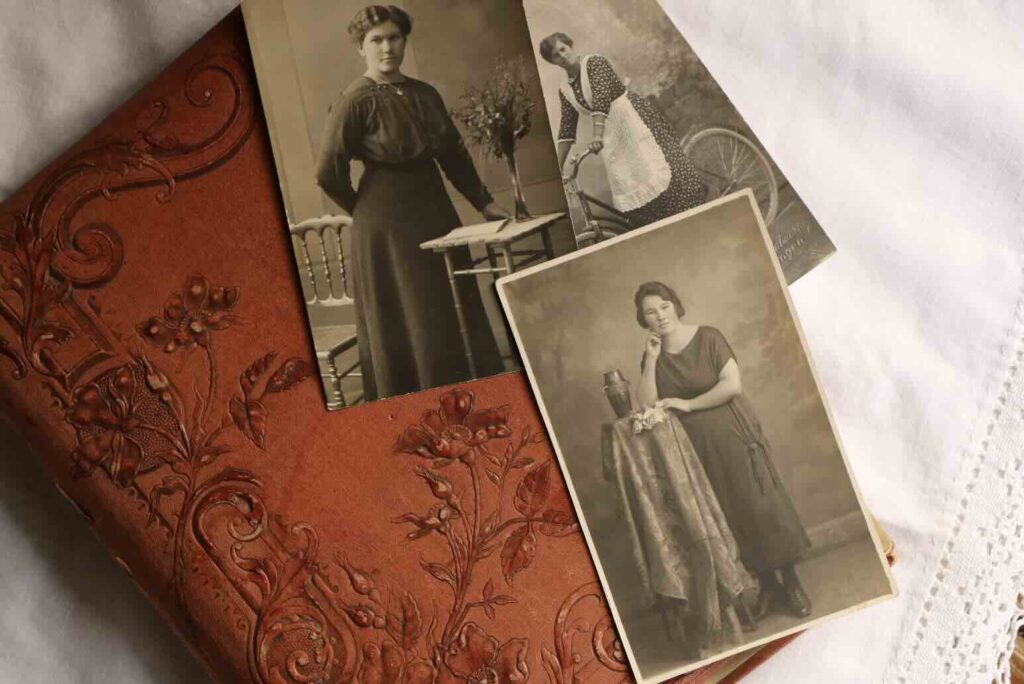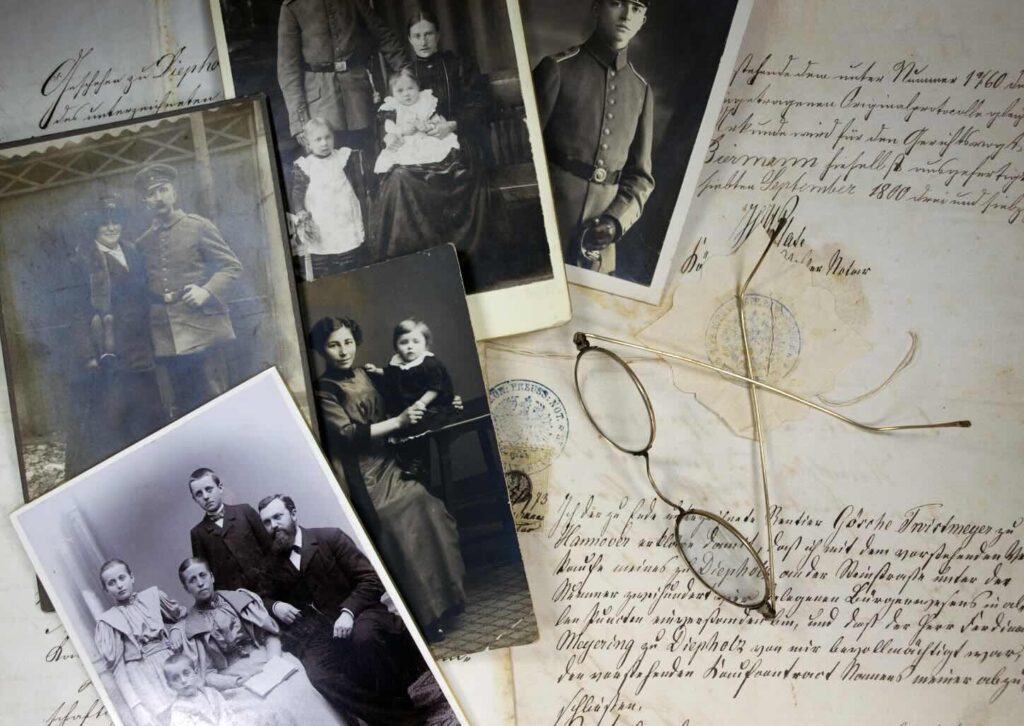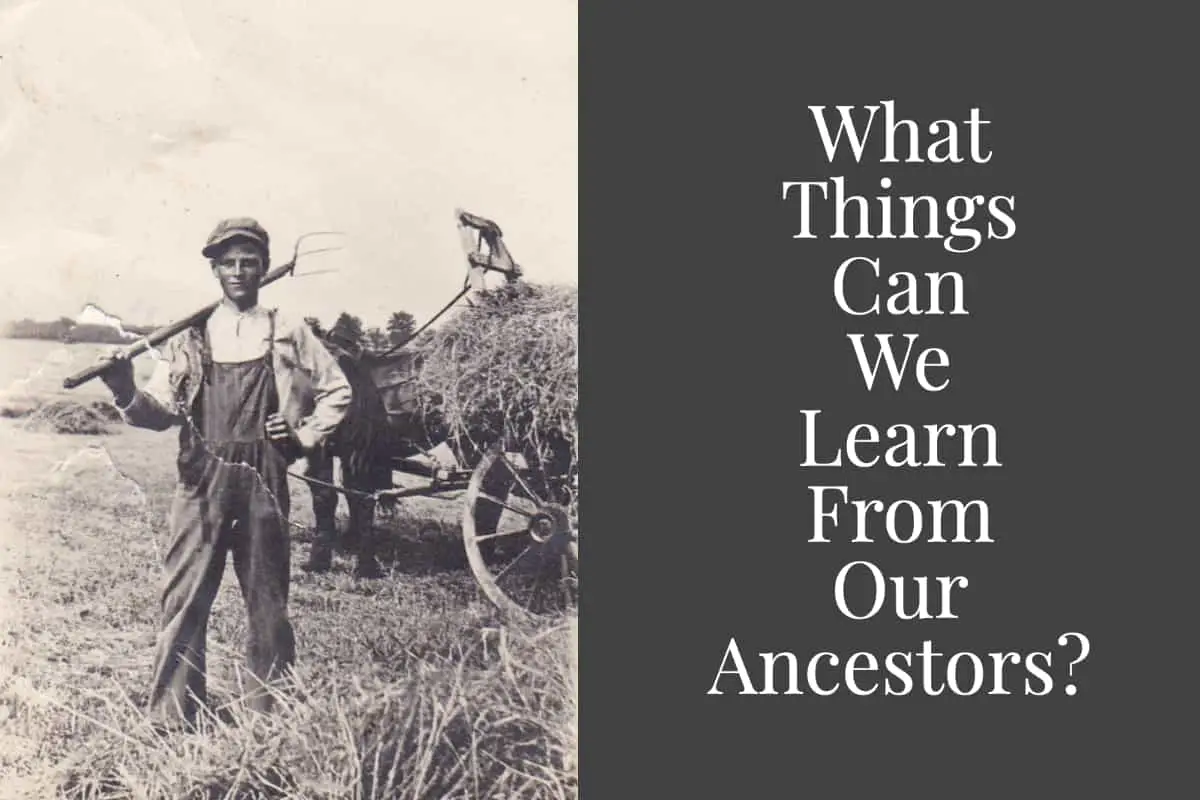There are many great things we can learn from our ancestors. As we learn about them, we also learn important life lessons.
Our ancestors taught us that family matters, education is essential, and change can happen in life, so we need to learn to deal with it. We also learn that people only know your story if you write it down and that our family traditions are important. We also learn from our ancestors about compassion, love, and gratitude.
Table of Contents
- Valuable Lessons Derived from Our Ancestors
- We Learn From Our Ancestors That Family Is Important
- We Learn From Our Ancestors That Education Is Important
- Our Ancestors Teach Us That Change Happens, So Live With It
- People Only Know Your Story If You Write It Down
- We Discover That Family Traditions Matter
- Our Ancestors Teach Us Compassion
- We Feel Love And Gratitude For Our Ancestors
- 10 Steps To Delving Into Your Family History
- Related Questions
Valuable Lessons Derived from Our Ancestors
Through their experiences and stories, our ancestors have bequeathed us a treasure trove of wisdom that remains relevant in our modern lives. By delving into their lives and histories, we uncover invaluable lessons that resonate through time.
Among these, the significance of family and the pivotal role of education emerge as fundamental teachings. We are reminded of the inevitability of change and the importance of adapting to it with resilience. Moreover, our ancestors taught us the power of storytelling in preserving our legacies, emphasizing that our narratives endure only if we document them.
Preserving and celebrating family traditions also stand out as a vital inheritance. Compassion, love, and gratitude are woven into the fabric of the lessons passed down from our forebears, enriching our understanding of life and human connections.
One of the ways we discover more about our ancestors is when we do our genealogy and family history work. To learn more about the difference between genealogy, family history, and ancestry, you can read our blog on The Difference Between Genealogy, Family History, and Ancestry by clicking here.
Here are some things we learned from our ancestors.
We Learn From Our Ancestors That Family Is Important
My ancestors have taught me that family is essential. We are all born into a family, and others get adopted into one, but no matter your circumstances, your family does matter.
I have a great-grandfather, Lewis Bookwalter. Grandpa Lewis was a scholar, a College president, and a professor of ancient languages. He also loved history, so he left a legacy of part of our family history. He wrote about our family in a paper called “History of my family on my mother’s side.”
In this paper, he spoke about some of his mother’s memories of her family. Memories that go back several generations. I learned from Great Grandfather Lewis that family does matter and that discovering family members who have gone before us is important. Sometimes, that gift you can give others is to show them they are important and not forgotten.
We Learn From Our Ancestors That Education Is Important
I grew up in a home where the question was never if you were going to college, but the question was always, where will you go to college? How many degrees will you get?
My grandfather and his twin brother lost their mother and father at a young age. They went to live with an aunt, and she died when they were both 15 years old. But this did not stop them from getting a good education.
In his personal history, my grandfather speaks of how he worked through the University of Chicago, working long, hard hours. He and his brother obtained their bachelor’s and master’s degrees, and my grandfather eventually received a Ph.D.
My grandfather taught me that education was important. You are never too old or young to work to get a good education.
Our Ancestors Teach Us That Change Happens, So Live With It
I have a great-grandfather, James Johnston, a Baron in Scotland in the mid-18th century. His family had money and a castle in Scotland. He was the youngest of three sons.
One day, his father, uncle, and two older brothers went to a crucial meeting. On their way home from the meeting, they were captured and beheaded.
My great-grandfather James Johnston had a prize put on his head and could only escape the fate of his father and brothers because he was away hunting when they met.
Here he was, a nobleman who had lost everything. His castle, land, and livelihood. But this did not stop him. He eventually married, moved to England, and took up the trade of becoming a jeweler. He became quite a successful jeweler in London.
I learned from him that change could happen, and when it does, it is good if we can go with it and learn from it that we should not allow change to paralyze or define our lives.
People Only Know Your Story If You Write It Down
Any historian or anyone interested in history will tell you that people only know your story if you take the time to write it down. History is about the stories and lives of those who have gone before us and, more importantly, those who left a record. Those ancestors we know or remember many times are those who left us a written or photographic legacy.
We learn from our ancestors that writing down our own stories does matter. And reading and understanding the stories our ancestors left is also essential.
We Discover That Family Traditions Matter
I feel blessed to have grown up in a house where traditions mattered. My mother is from Stockholm, Sweden, so our house is filled with Swedish traditions.
You can find us dancing around the Christmas tree each Christmas, singing all the Swedish Christmas songs. I may know the words for many Swedish Christmas songs better than the English ones.
We can learn from our ancestor’s traditions. When we celebrate these traditions, not only do we honor them, but we begin to understand them and their lives.
Our Ancestors Teach Us Compassion
We can learn compassion from our ancestors. As we discover more about their lives, through doing our family history research, we may find things that are not always pleasant or nice.
A grandmother was maybe raped, so she gave us a daughter and moved to the big city. Another relative was in trouble with the law.
As we learn the good and the bad about our family, we understand that they are human and have human flaws. As I discover the human side of my ancestors, I feel great compassion for them. I know that, like me, they were human.

We Feel Love And Gratitude For Our Ancestors
As we learn about our ancestors’ lives, we feel love and gratitude for them. We only really love the people we get to know, which is true of our ancestors. To feel love for them, we need to get to know them and understand their lives.
We also only feel gratitude for people if we know what they have done for us. It is the same with our ancestors, and we will only really feel gratitude if we understand the sacrifices they made for us so that our lives can be better than theirs.
I am thankful for all those who have gone before me and sacrificed so that I could have a better life and the opportunities I now have. As you learn about your ancestors, you begin to learn and understand more about the love they had for you and their gratitude for their sacrifices.
These points are not meant in any way to be conclusive. When we start the journey to discover the lives of our ancestors, we will learn and discover different things. The main thing is that we work to begin that journey and to get them to know our ancestors and their lives.
To discover how you can get started on your genealogy and family history research, you can read our blog on How Can I Find My Family History For Free? by clicking here.
10 Steps To Delving Into Your Family History
Embarking on the journey of uncovering my family history has been a deeply rewarding experience. The tales of ancestors, the records interwoven with global events, and the personal discoveries enrich this endeavor.
Based on my personal experience, here are ten steps you can take to dive into your own family’s past:
- Begin with What You Know: I started by jotting down everything I knew about my ancestors – names, birthplaces, anecdotes, and any other tidbits. This initial compilation served as a foundation for further research.
- Use Digital Platforms: Leveraging platforms like FamilySearch or Ancestry was invaluable. These sites provide tools and databases that made my search organized and expansive.
- Engage with Elderly Relatives: Some of the most enlightening information came from conversations I had with my oldest relatives. Their memories provided personal insights, stories, and details that weren’t documented elsewhere.
- Organize Family Documents: I sifted through old letters, photos, diaries, and official documents. Organizing these resources chronologically or by family branches helped me in piecing together timelines and narratives.
- Research Records: Diving into public records, such as census data, birth and death certificates, and land deeds, provided factual underpinnings to the stories I’d heard or the data I’d collected.
- Collaborate with Others: Engaging with distant relatives or other researchers can be enlightening. They might have pieces of the puzzle you’re missing. I’ve found collaboration to be key in painting a comprehensive family picture.
- Visit Ancestral Places: Visiting towns or landmarks associated with your family can provide a tangible connection to your history. Walking the streets my ancestors once walked was a moving experience.
- Join a Genealogical Group: Local or online genealogy groups can be a wealth of information. I found these communities to be supportive, offering resources, tips, and sometimes even personal connections.
- Document Everything: As I delved deeper, I ensured I documented every discovery. Maintaining a thorough record was essential, whether it was a digital file, a notebook entry, or a voice recording.
- Stay Patient and Open-minded: The journey of uncovering family history can be filled with surprises, dead-ends, and revelations. I learned to be patient, persevere through challenges, and remain open to discovering unexpected facets of my family’s past.

Tracing one’s family history is like assembling a vast, intricate puzzle. Each piece, whether a documented fact or a whispered family legend, adds to the rich tapestry of your lineage. This journey has been about more than just names and dates; it’s about understanding where I come from and the myriad stories that have shaped my legacy.
At A Bus On A Dusty Road, we talk about travel, life, and ex-pat living. We are all about “Living Life As A Global Citizen.” We explore social, cultural, and economic issues and travel.
We would love to have you be part of our community. Sign up for our newsletter to keep up-to-date by clicking here. If you have any questions, you can contact me, Anita, by clicking here.
Listen to our Podcast called Dusty Roads. You can find it on all major podcast platforms. Try out listening to one of our podcasts by clicking here.
Subscribe to our A Bus On A Dusty Road YouTube Channel with great videos and information by clicking here.
Related Questions
Why Is Knowing Your Ancestor’s Homeland Is Important?
Research about your ancestor’s homeland is essential to any genealogical travel. You must do your research on your ancestor’s hometown before your travel to that location. If you are unsure where to look, consider getting a DNA test.
You can discover more by reading Genealogy Travel: Why Knowing Your Ancestor’s Homeland Is Important by clicking here.
How Can I Travel to Discover my Family Tree and Family Roots?
We can learn a lot about ourselves and our family roots when we travel and meet family members in faraway lands and places. We can learn from them about the lives of our ancestors before us. Knowing our family roots can give us a sense of belonging. When we get to know the stories of our ancestors, it can inspire our lives.
You can learn more by reading our blog Traveling to Discover Your Family Tree and Your Roots by clicking here.



One response to “What Things Can We Learn From Our Ancestors?”
Thank you for your sharing. I am worried that I lack creative ideas. It is your article that makes me full of hope. Thank you. But, I have a question, can you help me? https://www.binance.info/tr/join?ref=IJFGOAID